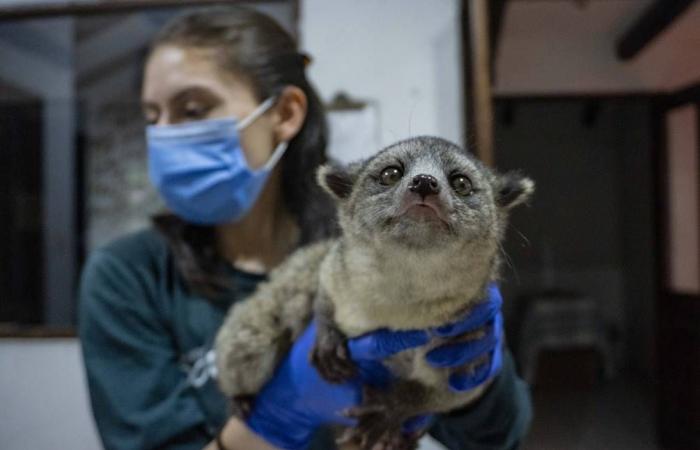
It is the first time that the International Day Against Wildlife Trafficking will be included in the environmental calendar and will be this June 25, 2024. This with the aim of raising awareness in society about this problem that, annually, affects more than 100,000 animals on the continentand that requires urgent actions for its prevention and combat.
The new date was promoted in 14 countries by more than 50 organizations that make up the Latin American Association of Zoological Parks and Aquariums (ALPZA), a regional union that seeks the protection of wild species, environmental education and scientific research.
Cuban lizard expands north of Ecuador and is considered a “great threat” to nature
“Despite legislative efforts in various countries to regulate hunting and promote conservation, illegal wildlife trafficking continues to endanger our biodiversity,” said Alexandra Guerra, executive director of ALPZA.
The Quito Zoo, El Pantanal, Bioparque AMARU and EcoZoo San Martín de Baños joined together for this declaration and to stop the illegal trade of species. These institutions work as rescue and care centers for affected fauna.
According to the Ministry of Environment, Water and Ecological Transition, 700 animals were rescued in Ecuador during 2023; Orellana, Napo and Sucumbíos, Guayas, Carchi, Imbabura and Pichincha being the provinces with the highest number of cases.
It has no lungs and breathes through its skin: this is the amazing amphibian that lives in Ecuador
And according to the Environmental Protection Unit (UPMA), the number of animals rescued during that same year could rise to 4,911 nationwide.
“The sale of animal parts for ancestral medicine, as well as petism and drug trafficking are the main causes that strengthen illegal trafficking networks. The physical injuries and behavioral damage with which these animals arrive at the centers range from malnutrition to mutilations, and in most cases, despite technical efforts, they cannot return to their habitat,” the statement says.
Furthermore, the extraction of animals from their habitat not only implies this cruel act against fauna, but also a series of consequences such as:
- Extinction of rare and endemic native species.
- Decrease in the population size of wild species.
- Loss of genetic diversity.
- Impossibility of cultural eradication of petism of wild animals.
- Public health risks generated by zoonotic diseases, which can end in pandemics.
- Alteration of the environmental functions and services of the ecosystem.
- Potential effects on key species.
- Introduction of invasive species.
This Tuesday, the Quito Zoo will hold a day with its staff and representatives of the Ministry of the Environment, which will include informative talks and workshops on the problem of illegal trade in species.
The Latin American Association of Zoological Parks and Aquariums (ALPZA) is a regional organization committed to the conservation of biodiversity and animal welfare. (YO)





